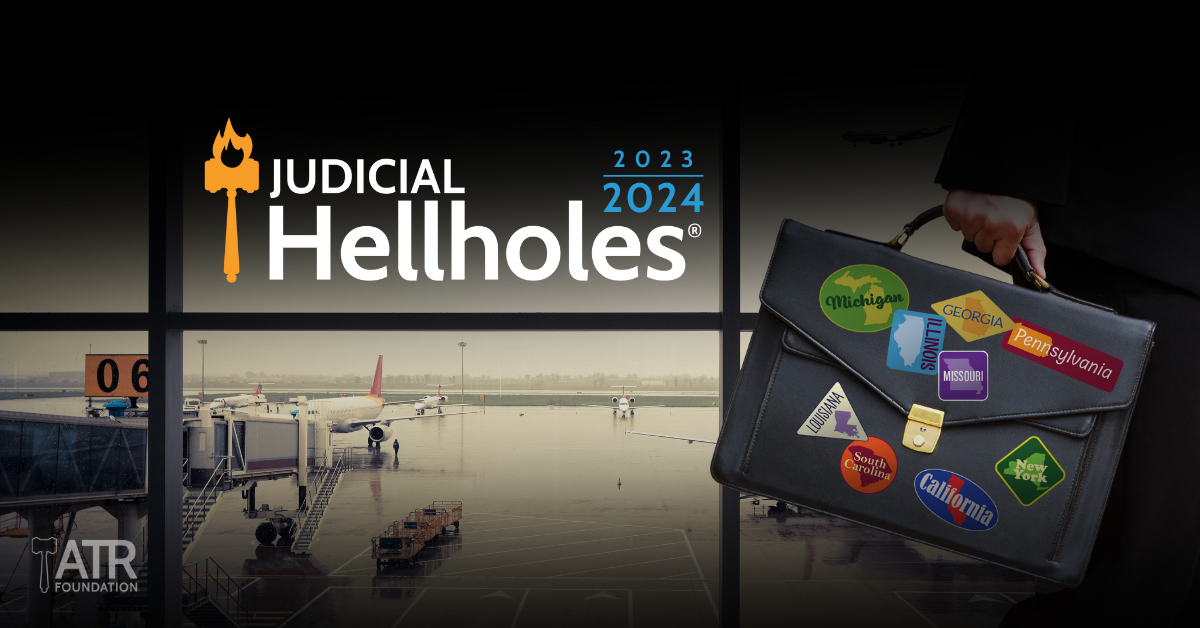Delaware On Verge of Becoming Litigation Hotbed, Supreme Court Has Opportunity to Step In to Avoid This in Zantac Litigation
In early June, Delaware Superior Court Judge Vivian L. Medinilla refused to exercise her essential role as gatekeeper and permitted junk science to serve as the basis for Zantac litigation. The Delaware cases, like similar litigation across the nation, seeks to hold Zantac drug manufacturers liable for causing several types of cancer. Now the Delaware Supreme Court is being called on to reverse Judge Medinilla’s decision and signal that junk science has no place in Delaware courts.
The decision threatens to create a litigation hotbed in Delaware, a state traditionally known for its fair, balanced, and predictable treatment of corporations. Currently, there are more than 72,000 Zantac cases pending in Delaware state courts and 99.6% were filed by out-of-state plaintiffs. More than 66% of Fortune 500 companies have chosen Delaware as their “corporate home.” Should Judge Medinilla’s decision be allowed to stand, junk science will permeate the judicial system and plaintiffs from across the country will flock to Delaware courts in even greater numbers, draining the state of significant resources and clogging the courts.
Valisure’s Junk Science
The Zantac litigation saga began in 2019 when Valisure, a small private lab in Connecticut, linked the drug to certain types of cancers. Zantac was voluntarily removed from the market in 2020 after a study by Valisure found that one of the medication’s ingredients, ranitidine, could possibly degrade to form a probable human carcinogen known as NDMA.
Rather than wait for the science to properly develop and be tested, plaintiffs’ lawyers immediately capitalized, filing thousands of claims in Judicial Hellholes across the country.
Valisure’s testing methodology involved heating the product to well over 200 degrees, which is clearly not a realistic scenario for how an individual would consume the drug, considering that is double the temperature of the average healthy person.
Besides heating the product to temperatures it would not otherwise be subjected to, Valisure also tested the product with an artificial stomach containing unusually high amounts of salt – amounts that humans could not safely ingest.
To make matters worse, the FDA actually found that Valisure’s lab equipment created NDMA. Following the release of the Valisure report, 16 epidemiological studies were released all finding no credible evidence of Zantac being a carcinogen.
Federal multidistrict litigation in Florida involving Zantac was dismissed in 2022 after flaws behind the science of plaintiff experts’ claims were exposed by U.S. District Court Judge Robin Rosenberg. Judge Rosenberg said “there is no scientist outside this litigation,” despite extensive study of the question after the product’s voluntary withdrawal, “who concluded ranitidine causes cancer.”
Judge Rosenberg wrote in her opinion that “the Plaintiffs’ scientists within this litigation systemically utilized unreliable methodologies with a lack of documentation on how experiments were conducted, a lack of substantiation for analytical leaps, a lack of statistically significant data, and a lack of internally consistent, objective, science-based standards for the evenhanded evaluation of data.”
Additionally, in May of this year, a Cook County jury rejected the very same junk science put forward by the plaintiffs’ lawyers and refused to hold Zantac drug manufacturers liable for causing plaintiffs’ cancer.
Delaware Deviates from MDL Decisions
Judge Medinilla issued several rulings that contradicted those issued in the MDL. She allowed the plaintiffs’ attorneys to rely on their experts’ flawed studies and disregard the other 16 epidemiological studies. She also failed to require a showing of a threshold dose. NDMA is present everywhere – i.e. water and food, so the MDL judge required plaintiffs show a certain dose increased the harm. Finally, the plaintiffs’ experts were allowed to use different methodologies in her courtroom than what they do in their real-world practices. One expert testified in court that Zantac was a carcinogen despite publishing a peer-reviewed report with other scientists stating the exact opposite. In other words, one Zantac plaintiff expert has a diametrically opposite opinion outside the litigation than in the litigation – something Daubert was meant to avoid. The other Zantac plaintiff experts have not had any of their opinions peer reviewed or published.
Judges’ Essential Role as Gatekeepers
The Delaware Supreme Court has an opportunity to review these decisions by taking the case up on interlocutory appeal and should do so without hesitation. It is essential that the Court recognize the importance of the judiciary’s gatekeeping role and reestablish a balanced civil justice system for the betterment of the state.
The impact on the state’s civil justice system will be far reaching. Delaware courts are supposed to apply Delaware Rule of Evidence 702 consistent with the Federal Rules. The newly amended Federal Rule of Evidence 702 empowers and instructs judges to critically examine an expert’s methodology before allowing testimony — a crucial safeguard against the type of questionable, litigation-driven science promoted by Valisure. Should judges be permitted to abandon this responsibility, Delaware could well be on its way to becoming a Judicial Hellhole.







